Don't wanna be here? Send us removal request.
Text
Why Music Therapy Is Effective for Kids with Developmental Delay
If you've ever watched your child light up when their favourite song comes on, you’ll know just how powerful music can be. But did you know that music can do more than just lift a child’s mood? For kids with developmental delays, music therapy is more than fun and games — it can actually support their growth in really meaningful ways.
Let’s dive into how music therapy works and why it’s such a game-changer for children with developmental challenges.

What Is Music Therapy?
Music therapy uses music in a structured, therapeutic way to help children reach developmental goals. We're not just talking about listening to tunes — we're talking about singing, playing instruments, moving to rhythm, and more, all guided by a trained therapist.
When it comes to supporting kids with developmental delays, music therapy helps with areas like communication, motor skills, social interaction, emotional regulation, and even cognitive development. And the best part? It doesn’t feel like hard work. For most kids, it just feels like fun.
How Music Helps the Brain Develop
There’s real science behind the power of music. Music stimulates multiple areas of the brain at once, including those responsible for language, movement, and emotion. That’s why music therapy is so effective for developmental delays. It builds connections in the brain and supports new learning pathways, especially for children who might find traditional therapy tricky or overwhelming.
For example, children who struggle to speak may learn to communicate by singing or using rhythm-based games to practise turn-taking and listening. Music gives them another way to express themselves, even when words are hard to find.
Building Motor Skills Through Rhythm and Movement
Music and movement go hand in hand — and for children with developmental delays, this can be a big help. Music therapy often involves clapping, drumming, dancing, or tapping along to a beat. These actions help improve coordination, balance, and fine motor control.
Because the activities are set to music, kids often stay engaged longer than they would in a more traditional therapy session. And when they’re having fun, they’re more likely to practise — which leads to even better results over time.
Encouraging Communication and Social Interaction
Music has a unique way of bringing people together. In a music therapy session, children might be encouraged to make eye contact, share instruments, or participate in group songs — all of which help build social and communication skills.
Music therapy for developmental delay often supports children on the autism spectrum or those with speech delays by giving them an alternative (and enjoyable) way to interact. Over time, these positive experiences can boost confidence and encourage more interaction outside the therapy room, too.
A Therapy That Feels Like Play
Let’s be honest — kids are more likely to stick with something if it’s fun. That’s what makes music therapy so effective. It taps into a child’s natural love of rhythm, sound, and movement, and turns therapy into something they actually look forward to.
For families, this means less resistance, fewer tears, and more smiles. And as children grow more confident, those small wins in music therapy often start to show up in everyday life — like following directions, joining in at kindy, or communicating more clearly at home.
Music therapy developmental delay isn’t just about learning songs — it’s about giving kids the tools they need to thrive, in a way that feels joyful and empowering. If you're looking for a therapy that meets your child where they’re at, and builds on their natural strengths, music might just be the magic you’re looking for.
0 notes
Text
Can Music Therapy Unlock the Potential in Children with Developmental Delays?
Children with developmental delays often face challenges in communication, motor skills, and emotional expression. These obstacles can sometimes make it difficult for them to fully engage in everyday activities or connect with others. One therapeutic approach that is increasingly gaining recognition for its positive impact is music therapy developmental delay. This creative and engaging form of therapy taps into the universal language of music, helping children unlock their potential in ways that traditional methods may not. But how exactly does music therapy benefit children with developmental delays, and can it truly help them thrive? Let’s explore the power of music therapy and how it can support children in overcoming these challenges.

The Benefits of Music Therapy for Children with Developmental Delays
Music therapy is a holistic approach that uses the elements of music – rhythm, melody, and harmony – to promote emotional, cognitive, and physical development. For children with developmental delays, it offers a non-verbal avenue for expression, which is especially valuable for those who struggle with communication skills.
Enhancing Communication Skills
For many children with developmental delays, verbal communication can be a significant challenge. Music therapy allows them to communicate in a way that words often can’t express. Through singing, playing instruments, or simply listening to music, children can convey emotions, thoughts, and ideas. These activities help children understand the connection between sound and meaning, which is particularly beneficial for language development. Over time, music therapy can improve a child's ability to use language more effectively in both verbal and non-verbal ways.
Boosting Cognitive and Social Skills
Engaging with music in therapy also encourages cognitive development. Rhythm and melody require children to focus, follow patterns, and respond to different musical cues. This helps enhance their attention span, memory, and problem-solving skills. Furthermore, participating in group music therapy sessions fosters social skills. Children learn to collaborate, take turns, and interact with their peers in a fun, supportive environment.
Promoting Emotional Expression and Regulation
Emotional development is another area where music therapy plays a crucial role. Children with developmental delays often struggle to express and regulate their emotions, which can lead to frustration or behavioural challenges. Music therapy offers a safe space for children to explore their feelings through sound, helping them process emotions such as anxiety, joy, or sadness. The soothing effect of music also helps in managing emotional regulation, reducing stress and promoting a sense of calm.
Improving Motor Skills and Coordination
Many forms of music therapy involve activities that require physical movement, such as clapping, drumming, or dancing. These activities can improve both fine and gross motor skills, helping children develop better hand-eye coordination, balance, and muscle control. Whether it’s tapping to the beat or playing instruments like drums or xylophones, music therapy encourages physical interaction with sound, which contributes to motor development.
Is Music Therapy the Key to Unlocking Potential?
While no single therapy can be considered a one-size-fits-all solution, music therapy developmental delay has shown remarkable benefits for many children. It provides a creative outlet for expression, builds confidence, and strengthens important developmental skills. By addressing multiple aspects of a child’s growth – from cognitive skills to emotional well-being – music therapy creates a holistic support system that complements other therapies and interventions.
Music therapy is a powerful and engaging approach that offers valuable support for children with developmental delays. By promoting communication, cognitive development, emotional regulation, and physical skills, music therapy opens up new opportunities for children to thrive. It’s a gentle yet effective way of unlocking potential and helping children overcome the challenges they face, making it an invaluable tool in their developmental journey. Whether it’s through rhythm, melody, or simply the joy of making music, children can find a path to self-expression and growth.
0 notes
Text
Music Therapy: A Powerful Tool for Children with Developmental Delays
If you’ve ever seen a child light up when their favourite song plays, you already know how powerful music can be. But did you know that music therapy can do so much more than just bring joy? For children with developmental delays, it can be a game-changer—helping with communication, motor skills, emotional regulation, and social interaction.
Music therapy developmental delay isn’t just about playing instruments or singing songs. It’s a structured, evidence-based practice that uses music to support a child’s individual development. Whether your child is struggling with speech, coordination, or emotional expression, music therapy can provide a safe and engaging way to build essential skills.

What is Music Therapy, and How Does it Help?
Music therapy is a therapeutic approach that uses music as a tool to address physical, emotional, cognitive, and social needs. Trained music therapists use tailored activities like singing, movement, and instrument playing to target specific developmental goals.
For children with developmental delays, music therapy can help in several key areas:
Communication and Language Skills – Many children with developmental delays find it difficult to express themselves verbally. Music provides a non-verbal medium that can encourage vocalisations, improve speech rhythm, and enhance comprehension.
Motor Skills and Coordination – Clapping, drumming, or dancing to a beat can help children develop fine and gross motor skills. Music therapy incorporates these activities to strengthen muscles, improve coordination, and enhance overall mobility.
Emotional Expression and Regulation – Music has a profound effect on emotions. It can help children express feelings they may not have the words for and develop coping mechanisms for anxiety, frustration, or sensory overload.
Social Interaction and Engagement – Group music sessions encourage turn-taking, eye contact, and active participation, helping children develop crucial social skills in a fun and supportive environment.
Why is Music Therapy So Effective for Developmental Delays?
Music has a unique ability to engage multiple areas of the brain at once, making it a highly effective tool for learning and development. Unlike traditional speech or physical therapy, music therapy feels more like play—so children are often more motivated to participate.
Research has shown that music activates both the left and right hemispheres of the brain, strengthening neural connections. This is particularly important for children with developmental delays, as it helps improve cognitive function, memory, and learning ability.
Another reason music therapy is so effective is its adaptability. Each session is tailored to suit a child’s individual needs, whether that means using rhythm to improve walking patterns, singing to enhance language skills, or playing instruments to encourage sensory exploration.
Real-Life Impact: How Music Therapy Changes Lives
To understand the real impact of music therapy, let’s look at a few examples:
Case Study 1: Alex, a 5-year-old with Autism – Alex struggled with verbal communication and often became overwhelmed in social settings. Through music therapy, he learned to use simple songs to request items, express feelings, and interact with peers. Over time, he became more comfortable in group activities and started using more words in everyday life.
Case Study 2: Mia, a 7-year-old with Cerebral Palsy – Mia had difficulty with movement and coordination. Her music therapist introduced drumming exercises that helped strengthen her upper body and improve hand-eye coordination. She also responded positively to rhythmic movement activities, which enhanced her overall mobility and confidence.
Case Study 3: Ethan, a 4-year-old with Speech Delays – Ethan had limited speech but loved music. His therapist used singing games and rhythmic patterns to encourage vocal sounds and word formation. Within months, he was using more words and forming simple sentences.
These stories highlight just how powerful music therapy can be. It’s not about forcing children to learn in a rigid way but allowing them to explore and develop skills in a natural and enjoyable manner.
How to Get Started with Music Therapy
If you think music therapy could benefit your child, the first step is to find a qualified music therapist. In Australia, the Australian Music Therapy Association (AMTA) is a great resource for finding registered professionals.
Here are a few things to consider when starting music therapy:
Find the Right Therapist – Look for a certified music therapist with experience working with children with developmental delays.
Set Clear Goals – Work with the therapist to identify specific areas of development to focus on, such as speech, motor skills, or emotional regulation.
Be Patient and Open-Minded – Every child responds differently, and progress can take time. The key is consistency and a positive approach.
Incorporate Music at Home – You don’t need to be a musician to use music with your child. Singing, dancing, or playing simple instruments at home can complement therapy sessions and reinforce learning.
Final Thoughts: Why Every Child Deserves the Gift of Music
Music therapy offers a world of possibilities for children with developmental delays. It’s fun, engaging, and, most importantly, effective. Whether your child struggles with communication, movement, or emotional expression, music can be a powerful tool to support their growth and development.
If you’re interested in exploring music therapy for your child, don’t hesitate to reach out to a qualified therapist. The journey may be full of surprises, but one thing is certain—music has the power to bring joy, confidence, and incredible progress.
0 notes
Text
Why Music Therapy for Developmental Delay is Gaining Popularity?
In recent years, music therapy has been gaining traction as a powerful tool to help children with developmental delays. It’s no secret that Aussies love their music, from the tunes we listen to on long drives to the beats we groove to on weekends. But did you know that music is also making waves in the world of therapy? If you’ve been hearing more about music therapy developmental delay and wondering how it works, you’re not alone. This growing field is offering new hope for families across the country, helping kids thrive in ways we might never have expected.
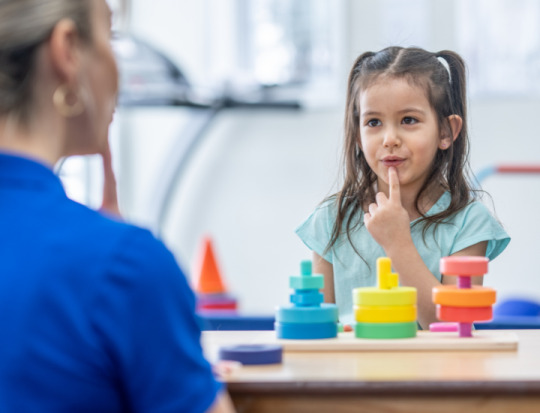
What Is Music Therapy and How Does It Work?
Music therapy isn’t just about listening to music—it’s a structured approach that uses sound, rhythm, and melody to encourage positive changes in physical, emotional, and cognitive development. For children with developmental delays, these therapies can provide a non-invasive way to promote communication skills, improve motor skills, and even support emotional regulation.
In a typical music therapy session, a trained therapist will use different instruments or even just the voice to interact with the child. The goal is to help the child express themselves, connect with others, and build confidence through the power of music. Whether it’s through drumming, singing, or playing an instrument, the child’s engagement with music creates a therapeutic environment that fosters growth and learning.
Why Is It Becoming More Popular in Australia?
Australians are known for being pretty open-minded when it comes to new ideas, and music therapy is no exception. While it's been around for a while, it's only in recent years that more parents and professionals have started embracing it for kids with developmental delays.
One of the key reasons behind this surge in popularity is the growing awareness of the benefits of music therapy for developmental delay. Many parents and professionals are now more open to alternative therapies beyond traditional interventions. With numerous success stories coming from parents who’ve seen positive results, it’s no surprise that music therapy is gaining attention.
Plus, it’s a fun and engaging way for kids to develop skills. Unlike other forms of therapy that might feel more like work or can be repetitive, music therapy taps into something kids naturally enjoy: sound, rhythm, and play. For children who may struggle to connect with others or express themselves, music can be a game-changer.
The Science Behind Music Therapy for Developmental Delay
So, how does music actually help kids with developmental delays? Research has shown that music stimulates multiple areas of the brain, which are responsible for memory, attention, and language skills. For children with developmental delays, music can serve as a bridge to accessing these areas in a way that traditional therapies might not.
Studies suggest that music therapy can improve motor skills, enhance speech development, and help children better express emotions. It has also been shown to boost social skills, as group music sessions encourage interaction and cooperation. In short, music isn’t just entertainment—it’s an educational and developmental tool with measurable benefits.
Real Success Stories: Music Therapy in Action
It’s always powerful to hear about real people benefiting from music therapy. Take a look at some of the success stories coming out of Australia, where music therapists are helping children with a range of developmental delays, including autism, ADHD, and language disorders.
For example, a Melbourne-based music therapist recently worked with a child who had trouble speaking. After several sessions, the child began using music as a form of communication, and over time, their verbal skills improved significantly. Stories like these are becoming more common, proving that music therapy isn’t just a feel-good idea—it’s making a real difference in the lives of families.
Is Music Therapy Right for Your Child?
If you’re a parent wondering whether music therapy could help your child, it’s important to speak with a qualified therapist who can assess your child’s specific needs. Every child is unique, and what works for one might not work for another. However, the growing body of research and the personal stories of success are certainly worth considering when exploring treatment options.
Exploring New Ways to Help Your Child Thrive
The popularity of music therapy for developmental delay is no accident. It offers a creative, engaging, and evidence-based approach to helping children reach their full potential. As more Aussie families discover the positive impact of music therapy, it’s clear that this form of treatment is here to stay.
If you’re curious to learn more about how music therapy could help your child, don’t hesitate to reach out. There’s a world of musical possibilities just waiting to be explored, and it might be exactly what your child needs to flourish. Contact us today to find out more about music therapy and how it can make a difference in your child’s development.
Contact Us for More Information
Ready to learn more about how music therapy can help your child with developmental delay? Get in touch with us today, and let’s start a conversation about the possibilities!
0 notes
Text
Why Music Therapy is Transforming the Lives of Children with Developmental Delays
Music has long been celebrated for its therapeutic effects on the mind and body, but its role in supporting children with developmental delays has gained significant attention in recent years. Music therapy offers a powerful and creative approach to helping children overcome challenges associated with developmental delays. This approach can enhance their emotional, cognitive, and physical development, providing them with the opportunity to engage in meaningful activities that promote growth and well-being. In particular, music therapy developmental delay has emerged as an invaluable tool for improving communication, social skills, and emotional regulation in children.

The Role of Music Therapy in Developmental Delays
Developmental delays refer to conditions where children do not meet typical milestones in areas such as language, motor skills, or social interaction at the expected age. These delays can stem from a variety of factors, including autism spectrum disorder, Down syndrome, cerebral palsy, and other developmental disabilities. Music therapy uses structured musical interventions to address these challenges, helping children develop skills that may be difficult for them to acquire through traditional therapies.
One of the primary ways music therapy helps children with developmental delays is through its impact on communication. Many children with these delays struggle with verbal communication, making it difficult for them to express their needs and connect with others. Music, however, offers a non-verbal outlet for expression. Through singing, playing instruments, and engaging in rhythm activities, children can communicate and express emotions in a way that feels safe and accessible to them. These activities often provide a bridge between a child's inner world and the external one, allowing them to connect with others even when words are not enough.
Cognitive Benefits of Music Therapy
In addition to improving communication, music therapy offers significant cognitive benefits for children with developmental delays. Research has shown that engaging in music-based activities can enhance memory, attention, and problem-solving skills. For instance, rhythm exercises can help children develop their sense of timing and coordination, which are essential for tasks like reading, writing, and participating in physical activities. Furthermore, listening to music and creating sounds encourages children to focus their attention, enhancing their ability to concentrate on tasks and follow instructions.
For children with developmental delays, these cognitive improvements can have a far-reaching impact. Children who struggle with focus and attention may find it easier to engage in schoolwork or everyday activities. Additionally, music therapy can help to build skills such as sequencing and pattern recognition, which are essential for academic success and general life skills.
Emotional and Social Growth Through Music Therapy
Beyond cognitive and communication benefits, music therapy plays a vital role in emotional regulation and social development. Children with developmental delays often experience difficulty managing their emotions and may struggle with behaviours such as frustration, aggression, or withdrawal. Music, with its soothing rhythms and expressive qualities, can help these children calm down and self-regulate their emotions.
Moreover, music therapy fosters social interaction. Group music therapy sessions encourage children to work together, share instruments, and cooperate in creating music. This can improve their social skills, including taking turns, following group norms, and understanding social cues. Children who might otherwise feel isolated or overwhelmed can find common ground through music, helping them to form relationships and build confidence.
Real-Life Success Stories
Across Australia, music therapy has already made a significant impact in the lives of many children with developmental delays. For example, in schools and therapy centres, children who have difficulty speaking have been able to express themselves through song, while children who struggle with socialisation have thrived in group music sessions. Therapists report that children often develop a greater sense of self-esteem and become more engaged in their daily routines as they progress through music therapy.
0 notes
Text
Exploring the Impact of Music Therapy on Developmental Delay in Children
Developmental delay in children can manifest in many ways, affecting their cognitive, emotional, and physical growth. This can affect the child's ability to communicate, learn, and interact with his or her environment. However, there are various therapies and treatments that can help children with developmental delays, one of the most promising being music therapy. Music therapy is the use of sound, rhythm, and melody to support children in overcoming challenges related to their development. This article will discuss the advantages and impact of music therapy on children with developmental delay.

What is Music Therapy?
Music therapy is a form of therapeutic practice that utilises music to enhance physical, emotional, cognitive, and social well-being. In this form of therapy, a trained music therapist works with a child using various musical activities such as singing, playing instruments, and listening to music. The aim of music therapy is to support the child's developmental progress by using music as a tool to improve their abilities in areas such as communication, motor skills, and social interaction.
How Music Therapy Benefits Children with Developmental Delay
Music therapy has several benefits for children with developmental delay, and it can target various aspects of growth. The following are the major ways in which music therapy can support children who experience developmental difficulties:
Improves Communication Skills
Most children who have developmental delays often present with speaking difficulties. Improving on communication skills through music therapy can be quite powerful. For instance, singing and chanting will improve a child's vocalisation and articulation. While engaged in melody and rhythm, children will be stimulated to use their voices to the fullest for both verbal and non-verbal communication.
Enhances Cognitive Development
Music has the capacity to stimulate the brain, and it requires the utilisation of multiple cognitive functioning areas. Children with developmental delays who are participating in music therapy improve their ability to sustain attention, their memory, and problem-solving skills. Cognitive engagement such as recalling song lyrics, following a rhythm, or participating in group music-making can assist children with developmental delays to strengthen these abilities.
Increases Social Interaction
In many cases, for a child with developmental delay, it becomes difficult to develop social relationships. The group music therapy provides the environment where the child is given the chance to socialise with other children in a very safe and structured way. Playing an instrument together, clapping to a rhythm, or singing together tends to create cooperation, sharing, and bonding. All of these are essential interpersonal skills that improve the ability of the child to work with other people.
Develops Motor Skills
Music therapy is an engaging way through which children develop their fine and gross motor skills. It involves playing of instruments, clapping, or even dancing to the rhythm as they help children with developmental delays enhance their coordination, balance, and muscle control. The activities are not only enjoyable but help children improve their motor skills that can be very helpful for everyday activities and general independence.
Promotes Emotional Expression
Music therapy gives a child with developmental delay an opportunity to voice out emotions in a safe space. Some children cannot voice out their feelings; therefore, through music, they can give non-verbal expression of their feelings. A child may use a drum to express frustration or sing a song to show happiness, and through this, music therapy helps a child get an emotional outlet for his or her feelings to improve understanding and regulation of these feelings.
Confidence and Self-Esteem Boost
As children engage in music therapy, they experience success in achieving milestones like learning a song or playing an instrument. These small victories help build confidence and self-esteem. Children with developmental delays often face challenges in various areas of their lives, but music therapy provides them with a sense of accomplishment and helps them recognise their abilities.
The Role of Music Therapy Developmental Delay
Music therapy developmental delay offers a holistic approach to addressing the unique needs of each child. With a personalised approach, therapists can tailor music-based interventions to meet the specific challenges faced by children. This specialised care enables the therapist to monitor progress, adapt activities, and ensure the child’s developmental needs are being met in a supportive and non-threatening environment.
In summary, music therapy provides a wealth of benefits for children with developmental delays. From improving communication and cognitive abilities to enhancing motor skills and emotional regulation, music therapy is a valuable tool in supporting children’s growth and development. As it fosters creativity, social interaction, and self-expression, it helps children overcome obstacles they may face due to their developmental delay. For families seeking alternative therapies, music therapy offers a powerful way to support their child’s developmental journey.
0 notes
Text
From Notes to Growth: Music Therapy's Impact on Developmental Delays
Music therapy has become a valuable tool in supporting children with developmental delays, offering them a creative way to improve communication, motor skills, and emotional expression. Using music as a medium for therapy, children can engage in a dynamic process that promotes growth across various developmental areas. In Australia, music therapy is gaining widespread recognition for its ability to help children navigate the challenges of developmental delays, offering a non-invasive yet powerful approach to fostering growth.

The Role of Music in Therapy
Music therapy leverages the power of rhythm, melody, and harmony to engage the brain in unique ways. For children with developmental delays, music offers a non-verbal outlet for communication, allowing them to express themselves when words fail. Through singing, playing instruments, or simply listening to music, children can develop cognitive and motor skills while also processing emotions in a safe and enjoyable environment. Music therapy fosters an emotional connection that words alone may not reach, helping children express feelings such as joy, frustration, or sadness.
Enhancing Cognitive and Motor Skills
The ability of music therapy to promote both cognitive and motor development is one of its main advantages. Rhythmic activities such as clapping, drumming, or dancing encourage coordination and fine motor control. These activities also strengthen memory, attention, and concentration, skills essential for learning. For children with developmental delays, these exercises can significantly improve their motor abilities while enhancing cognitive functions like sequencing and problem-solving.
Singing or playing instruments also reinforces memory and language skills, as children are encouraged to remember lyrics, melodies, or rhythms. This not only enhances verbal memory but also helps with auditory processing and focus. The brain's engagement with music strengthens neural pathways, promoting better learning outcomes for children with developmental challenges.
Social Skills and Emotional Expression
Music therapy offers significant benefits for socialisation and emotional regulation. Many children with developmental delays face challenges with emotional expression and social interactions. Music therapy provides a structured, enjoyable setting for children to communicate with others in a way that feels less intimidating. Group music therapy sessions encourage children to interact, take turns, and share instruments, fostering important social skills like cooperation, empathy, and conflict resolution.
In addition to promoting social skills, music therapy offers a valuable emotional outlet. For children who struggle to express their feelings verbally, music becomes a safe and accessible way to process emotions. Whether through playing an instrument or singing a song, children can release stress, anxiety, and frustration, helping them manage their emotions in a healthy way. This emotional regulation is crucial for their overall development and well-being.
Holistic Development and Individualised Care
Music therapy takes a holistic approach to child development, addressing the physical, cognitive, emotional, and social aspects of growth. Each therapy session is tailored to the individual child's needs, ensuring that their specific challenges are met with appropriate techniques. For children with developmental delays, this personalised approach is essential, as it helps them progress at their own pace while still encouraging new skills and abilities.
In Australia, music therapy for children is provided by trained music therapists who carefully design sessions that incorporate listening, singing, and instrument playing. These therapists work closely with families and other healthcare providers to create a supportive environment where children feel encouraged to grow and learn. The goal is not only to improve the child's abilities but to build their confidence and sense of accomplishment along the way.
In summary, music therapy developmental delay offers a unique and effective approach to supporting children. Through rhythm, melody, and creative expression, children are given the tools to enhance cognitive, motor, emotional, and social development. Music therapy's non-verbal nature provides a safe space for children to communicate and express themselves, fostering growth in ways that traditional therapies might not.
By focusing on the whole child and providing tailored individualised care, music therapy helps children with developmental delays reach their full potential. As its benefits continue to be recognised, music therapy remains an invaluable resource for families and healthcare providers working to support children's development in a creative, engaging, and meaningful way.
0 notes
Text
What Role Does Rhythm Play in Music Therapy for Children Experiencing Developmental Delays?
Music therapy is an increasingly recognised approach for supporting children experiencing developmental delays. One of the critical elements of music therapy is rhythm, which plays a vital role in enhancing communication, social skills, and emotional expression in young individuals. Understanding how rhythm influences therapy can help caregivers and therapists better support these children.
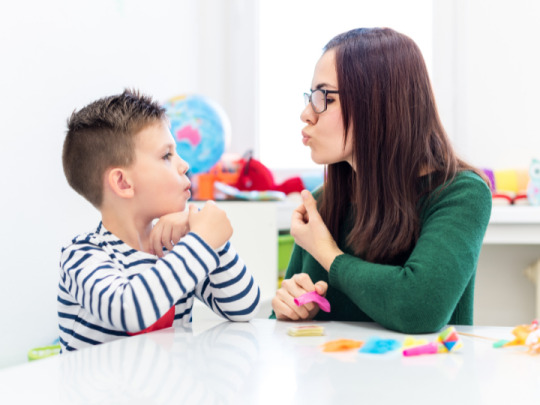
The Importance of Rhythm
Rhythm is a fundamental aspect of music, impacting its structure and emotional appeal. In music therapy for children with developmental delays, rhythm can facilitate engagement and participation. Children are often naturally drawn to rhythmic patterns, which can capture their attention and encourage them to interact more freely. This attraction to rhythm can increase motivation, making therapy sessions more enjoyable and effective.
Enhancing Communication Skills
One of the primary goals of music therapy is to improve communication skills. Rhythm can aid this process by providing a structured framework for verbal and non-verbal interactions. For example, clapping to a beat or using percussion instruments allows children to express themselves in a safe and supportive environment. Children can learn to initiate communication and respond to others by responding to rhythmic cues, enhancing their social skills.
Promoting Emotional Expression
Children with developmental delays often struggle to express their emotions verbally. Rhythm can act as a bridge, allowing them to convey their feelings through music. For instance, drumming can be a powerful outlet for expressing frustration or excitement. This emotional release can be particularly beneficial in therapeutic settings, where understanding and processing feelings is crucial for development.
Building Cognitive Skills
Rhythm also plays a significant role in cognitive development. Engaging with rhythm can improve memory, attention, and problem-solving skills. Activities such as repeating rhythmic patterns or improvising with instruments challenge children to think critically and develop cognitive abilities. This can be especially helpful for children experiencing developmental delays, as it encourages growth in areas where they may face challenges.
In summary, rhythm is a cornerstone of music therapy for children experiencing developmental delays. Its ability to enhance communication, promote emotional expression, and build cognitive skills makes it an invaluable tool in therapeutic settings. Therapists can create a dynamic and engaging environment that fosters development and growth by incorporating rhythmic elements into music therapy. As we continue to explore the benefits of music therapy developmental delay, understanding the role of rhythm will be crucial in designing effective therapeutic interventions.
0 notes
Text
Understanding the Role of Art Therapy in Treating Developmental Delays
Art therapy is an increasingly recognised approach to supporting individuals with developmental delays. This therapeutic method promotes emotional, cognitive, and social development by harnessing creative expression. This article explores the significance of art therapy in addressing the challenges associated with developmental delays and highlights its benefits in fostering overall growth.
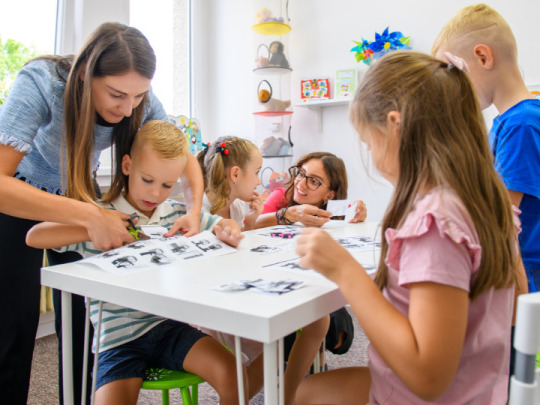
The Importance of Art Therapy in Developmental Delays
Developmental delays can manifest in various ways, affecting a child’s communication, motor skills, and social interactions. Traditional therapies often focus on direct skills training, but art therapy provides a unique avenue for expression that can engage children on a deeper emotional level. This therapeutic approach uses creative processes like painting, drawing, and sculpting to encourage children to express their thoughts and feelings.
Art therapy is particularly beneficial because it allows children to communicate in ways that might be challenging through words alone. Verbal communication may not come quickly to those with developmental delays. Engaging in art activities helps these children articulate their emotions and experiences, fostering agency and empowerment.
Benefits of Art Therapy for Children with Developmental Delays
Enhanced Communication Skills
Art therapy provides an alternative form of communication. Through creative expression, children can convey emotions and thoughts they may struggle to verbalise, aiding overall communication development.
Improved Emotional Regulation
Art can be a calming activity, allowing children to explore their feelings in a safe environment. This can lead to better emotional regulation, helping them manage frustration or anxiety.
Boosted Self-Esteem
Creating art fosters a sense of achievement and pride. Children learn to value their unique expressions, which can significantly enhance their self-esteem and confidence.
Social Skills Development
Group art therapy developmental delay sessions encourage collaboration and interaction with peers. These social opportunities can improve skills such as sharing, taking turns, and understanding social cues.
Cognitive Growth
Creating art stimulates cognitive development by encouraging problem-solving, critical thinking, and planning skills. Children learn to make decisions about their art, which can translate to other areas of their lives.
In summary, art therapy is crucial in treating developmental delays by offering a multifaceted approach that nurtures emotional, social, and cognitive growth. Art therapy helps bridge the gap between their feelings and their ability to communicate by providing children with a means to express themselves creatively. As awareness of the benefits of art therapy in addressing developmental delays continues to grow, more families are likely to explore this enriching therapeutic option for their children.
0 notes
Text
How to Incorporate Music Therapy into Your Child’s Developmental Delay Treatment Plan?
Music therapy is increasingly recognised as a valuable tool in addressing developmental delays in children. By harnessing the therapeutic power of music, practitioners can offer a unique approach to enhancing various aspects of a child’s development. If you’re considering incorporating music therapy into your child’s developmental delay treatment plan, understanding its benefits and practical application is essential.
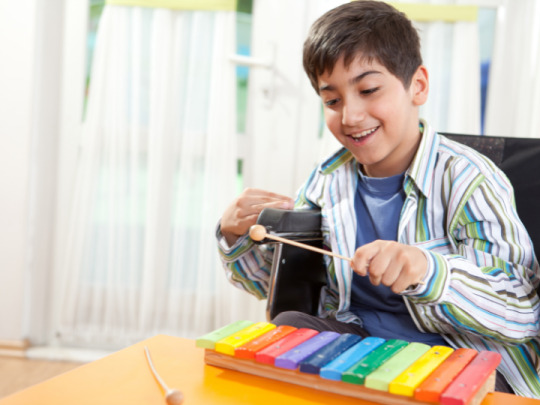
Benefits of Music Therapy for Children with Developmental Delays
Music therapy offers several advantages for children experiencing developmental delays. It helps improve communication skills, motor coordination, and cognitive functions through engaging, interactive methods. Here’s how:
Enhanced Communication Skills
Music therapy provides an alternative means of expression for children struggling with verbal communication. Children can develop better language skills and emotional expression through singing, playing instruments, and listening to music.
Improved Motor Coordination
Dating, dancing, and playing musical instruments can significantly enhance fine and gross motor skills. These activities encourage movement and coordination in a fun, motivating way.
Cognitive Development
Music therapy supports cognitive skills such as attention, memory, and problem-solving. Structured musical activities can help children focus, remember instructions, and improve their learning abilities.
How to Integrate Music Therapy into Your Child’s Treatment Plan?
Incorporating music therapy developmental delay into your child’s treatment plan involves several key steps:
Consult with Professionals
Start with a music therapist specialising in working with children with developmental delays. They can assess your child’s needs and tailor a therapy plan accordingly.
Set Clear Goals
Work with the therapist to establish clear, achievable goals. These include improving specific communication skills, enhancing motor functions, or boosting cognitive abilities. Clear goals will help track progress and adjust the therapy as needed.
Create a Routine
Consistency is crucial in therapy. Incorporate music therapy sessions into your child’s weekly schedule to ensure regular practice and maximise benefits. The frequency and duration of sessions will depend on your child’s needs and therapist’s recommendations.
Involve the Family
Encourage family participation in music therapy activities. This involvement can reinforce skills learned during therapy and provide additional support and motivation for your child.
Monitor Progress
Review your child’s development through music therapy regularly. Communicate with the therapist to discuss any changes or adaptations needed in the treatment plan.
In summary, music therapy is a powerful tool in addressing developmental delays in children. Improving communication, motor coordination, and cognitive skills offers a unique, engaging approach to therapy. To effectively incorporate music therapy into your child’s developmental delay treatment plan, consult a qualified therapist, set clear goals, create a consistent routine, involve family, and monitor progress. Following these steps can enhance your child’s development and support their journey towards achieving their full potential.
0 notes
Text
The Benefits of Art Therapy for Managing Developmental Delay
Art therapy is a powerful tool for managing various developmental delays. This creative approach employs artistic activities to help individuals express themselves, build confidence, and improve their cognitive and emotional skills. Developmental delay is when a child's growth or development in one or more areas, such as motor skills, speech, or social skills, occurs at a slower rate than expected.
Art therapy is particularly beneficial for children experiencing developmental delays because it provides a non-verbal medium through which they can explore their feelings, thoughts, and experiences. This therapeutic approach not only engages children in a fun and creative process but also helps them develop critical skills that are essential for their overall growth. It empowers them to express themselves in ways they might find difficult verbally, instilling a sense of hope and optimism in their journey.

How Does Art Therapy Help in Managing Developmental Delay?
Enhanced Communication Skills
Art therapy can significantly improve communication abilities in children with developmental delays. Through drawing, painting, or sculpting, children can express emotions and ideas that they might find difficult to articulate verbally. This form of expression helps build vocabulary and understanding of social cues, thus enhancing their overall communication skills.
Improved Motor Skills
Artistic activities such as using brushes, pencils, or clay can aid in the development of fine motor skills. These tasks require precise hand movements and coordination, crucial for everyday activities. Regular participation in art therapy developmental delay supports improving these motor skills, aiding the child's ability to perform daily tasks more effectively.
Boosted Self-Esteem and Confidence
Creating art provides a sense of accomplishment and pride. For children with developmental delays, this can be incredibly empowering. Art therapy allows them to experience success in a non-judgemental setting, boosting their self-esteem and confidence. This increased confidence can translate into other areas of their life, including social interactions and academic performance.
Emotional Regulation and Expression
Art therapy provides a safe space for children to explore and express their emotions. It can be particularly beneficial for managing feelings of frustration, anxiety, or sadness that often accompany developmental delays. Children learn to channel their emotions constructively and develop healthier coping strategies by engaging in creative activities.
Enhanced Social Skills
Group art therapy sessions offer children the opportunity to interact with their peers. These interactions can help them develop essential social skills such as sharing, turn-taking, and collaboration. Such experiences are valuable in helping children with developmental delays build stronger social connections and improve their interpersonal relationships.
In summary, incorporating art therapy into managing developmental delays can yield significant benefits. By enhancing communication skills, improving motor skills, boosting self-esteem, aiding emotional regulation, and fostering social interactions, art therapy provides a comprehensive approach to supporting children with developmental delays. As a creative and engaging therapeutic method, art therapy offers an effective way to address various developmental challenges and promote overall growth and well-being. To ensure the results, it's important to consult a qualified therapist who can tailor the approach to meet your child's unique needs, providing reassurance and comfort.
0 notes
Text
What Is Developmental Music Therapy?

Music has long been recognised as a powerful tool for healing and communication, but its role in developmental therapy is particularly profound. Developmental music therapy is an approach that uses music to support and enhance the growth and development of individuals, especially those with developmental delays. In this blog, we'll explore developmental music therapy, how it works, and why it's an effective intervention for those facing developmental challenges.
Understanding Developmental Music Therapy
Developmental music therapy is a specialised form of therapy that leverages the therapeutic elements of music to address individuals' unique developmental needs. This approach is especially beneficial for those with developmental delays, as it focuses on improving key areas such as cognitive, motor, emotional, and social skills through the structured use of music.
The Role of Music in Addressing Developmental Delay
Music therapy for developmental delay is designed to meet individuals at their current developmental level, providing them with tailored musical activities to stimulate growth in areas where they may struggle. Whether it's through singing, playing instruments, or moving to music, these activities are carefully chosen to target specific developmental goals.
For example, a child with speech delays might benefit from singing simple songs encouraging vocalisation and language development. Similarly, rhythmic activities, like drumming or clapping, can help improve motor coordination and timing in children with motor skill challenges.
How Music Therapy Supports Cognitive Development
Cognitive development is a critical focus in developmental music therapy. Music's structure and patterns can help individuals with developmental delays improve their attention, memory, and problem-solving skills. Engaging with music often requires sequencing, listening, and responding to all vital cognitive functions.
For instance, playing a simple melody on a keyboard or following along with a rhythm exercise can help improve concentration and enhance memory retention. Music's repetitive and predictable nature also provides a comforting framework for individuals to practice cognitive skills in a safe and enjoyable environment.
Enhancing Emotional and Social Skills Through Music
Music is a universal language of emotion, making it an ideal medium for helping individuals with developmental delays express and process their feelings. Developmental music therapy provides a non-verbal outlet for emotions, which is particularly beneficial for those who may struggle with verbal communication.
Through music therapy, individuals can explore their emotions in a safe space. For example, playing an instrument softly or loudly can help express feelings of calmness or frustration. Group music therapy sessions also offer opportunities for social interaction, where individuals can learn to take turns, listen to others, and work together, improving their social skills.
Tailoring Music Therapy to Individual Needs
One of developmental music therapy's strengths is its adaptability. Therapists customise each session to the individual's developmental stage and specific needs. This might involve selecting particular types of music, instruments, or activities that resonate most with the individual.
For example, if a child has difficulty with fine motor skills, the therapist might introduce small percussion instruments like tambourines or maracas that require simple hand movements. Alternatively, if the goal is to enhance language skills, the therapist might incorporate songs with repetitive lyrics that encourage vocal participation.
Long-Term Benefits of Developmental Music Therapy
The benefits of music therapy for developmental delay are far-reaching. Over time, individuals often experience improvements in various areas of their development. This can include better communication abilities, enhanced motor skills, improved social interactions, and greater emotional regulation.
Moreover, the positive experiences and achievements gained through music therapy can boost an individual's self-esteem and confidence. The sense of accomplishment from mastering a musical task, whether playing a rhythm correctly or singing a song, can impact their overall well-being.
Developmental music therapy is a powerful and versatile tool for supporting individuals with developmental delays. Using music as a therapeutic medium, this approach addresses cognitive, motor, emotional, and social challenges in an engaging, enjoyable, and compelling way.
For anyone seeking to support for music therapy developmental delay it offers a unique and enriching pathway to growth and development. Whether through the soothing tones of a melody or the rhythmic beats of a drum, this provides a nurturing environment where individuals can develop the skills they need to thrive.
1 note
·
View note
Text
Art Therapy for Developmental Delay: Creative Solutions for Growth
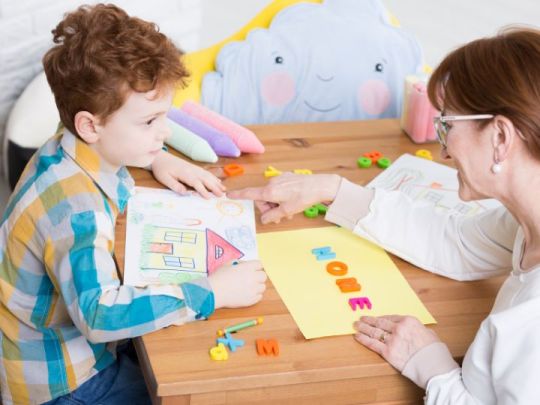
Art therapy is a powerful tool for addressing developmental delays in children, offering a unique approach to enhancing their skills and emotional well-being. If you're exploring innovative methods to support your child's development, art therapy for developmental delay might be the key to unlocking their potential.
What is Art Therapy for Developmental Delay?
Understanding Developmental Delay
Developmental delay occurs when a child does not meet expected developmental milestones within their age group. These delays affect various domains, including motor skills, communication, and social interactions. Art therapy for developmental delay focuses on using creative expression to address these challenges and promote overall development.
The Role of Art Therapy
Art therapy uses artistic activities to help children express themselves and work through developmental challenges. This therapeutic approach encourages creativity, improves motor skills, and fosters emotional expression. Through engaging in art, children can develop new skills, boost their confidence, and enhance their social interactions.
How Art Therapy Works
Individualised Art Therapy Sessions
Art therapy for developmental delay involves individualised sessions tailored to each child's needs and interests. The therapist designs activities that align with the child's developmental goals, providing a supportive environment for exploration and growth. These sessions focus on enhancing various skills, including fine motor skills, cognitive abilities, and emotional expression.
Therapeutic Techniques
Art therapists employ various techniques to address developmental delays, including:
Creative Expression: Using drawing, painting, and sculpting to help children express their emotions and thoughts.
Skill-Building Activities: Engaging in activities that promote fine motor skills, hand-eye coordination, and cognitive development.
Social Interaction: Encouraging collaborative art projects to enhance social skills and teamwork.
Benefits of Art Therapy
Enhanced Motor Skills
Art therapy can significantly improve a child's fine motor skills. Drawing and painting help develop hand-eye coordination and agility, which are essential for daily tasks like writing and buttoning clothes.
Improved Cognitive Abilities
Through art therapy, children can enhance their cognitive skills, including problem-solving, attention, and memory. Creative tasks stimulate mental development, helping children overcome challenges related to developmental delays.
Emotional Expression
Art therapy provides a safe space for children to express their emotions and thoughts. This can be particularly beneficial for those who struggle with verbal communication, allowing them to convey feelings through their artwork.
Boosted Confidence and Self-Esteem
Engaging in art therapy helps children build confidence and self-esteem. Completing art projects and receiving positive feedback can boost a child's sense of accomplishment and self-worth.
Why Choose Art Therapy for Developmental Delay?
Holistic Approach
Art therapy offers a holistic approach to addressing developmental delays, focusing on emotional and developmental aspects. By integrating creative expression into therapy, children receive comprehensive support that addresses multiple areas of their growth.
Personalised Support
Art therapy provides personalised support tailored to each child's unique needs and interests. The therapist works closely with the child to create activities that align with their developmental goals, ensuring a targeted and practical approach.
Engaging and Fun
Art therapy is an engaging and enjoyable way for children to work through developmental challenges. Its creative nature makes it a fun and motivating experience, encouraging active participation and engagement.
Getting Started with Art Therapy
If you're interested in exploring art therapy developmental delay, finding a qualified art therapist with experience working with children is essential. Look for Xavier professionals who offer personalised sessions and can tailor their approach to your child's needs.
0 notes
Text
Speech Therapy for Children with Disabilities in Ipswich: Enhancing Communication Skills

Understanding Speech Therapy for Children
Speech therapy is a crucial service for children with disabilities, aiming to improve their communication skills and overall quality of life. In Ipswich, speech therapy services are tailored to address various challenges children may face, such as speech delays, articulation issues, and language difficulties. The goal is to help children develop practical communication skills for their academic, social, and emotional development.
The Importance of Speech Therapy for Children with Disabilities
Speech therapy plays a vital role in the development of children with disabilities. Many disabilities can affect a child's ability to communicate clearly and effectively, which can impact their social interactions, learning abilities, and self-esteem. Speech therapists in Ipswich work closely with children to address these challenges and support their communication needs.
Benefits of Speech Therapy
Improved Communication Skills: One of the primary benefits of speech therapy is enhancing communication skills. Children learn to articulate sounds correctly, expand their vocabulary, and form coherent sentences. This helps them express their needs, thoughts, and feelings more effectively.
Boosted Confidence: As children progress in their speech therapy sessions, they often experience increased confidence. Communicating more clearly can lead to better interactions with peers and adults, improving social skills and self-esteem.
Enhanced Learning Abilities: Effective communication is crucial for learning. Speech therapy can help children better understand instructions, follow classroom discussions, and engage more actively in educational activities.
Speech Therapy Services in Ipswich
Speech Therapy children disability Ipswich are services tailored to the needs of children with disabilities. These services are provided by qualified speech therapists who specialise in working with children and understand their unique challenges.
Individualised Therapy Programs
Speech therapists in Ipswich develop individualised therapy programs based on each child's specific needs. These programs are designed to address areas such as:
Articulation Disorders: Helping children pronounce sounds correctly and improve their speech clarity.
Language Delays: Supporting vocabulary development, sentence structure, and comprehension skills.
Fluency Issues: Assisting children with stuttering or other fluency disorders in speaking more smoothly.
Social Communication: Enhancing social skills, including understanding non-verbal cues and engaging in appropriate conversation.
Family Involvement
A key aspect of speech therapy in Ipswich is involving families in the therapy process. Speech therapists work closely with parents and caregivers to provide strategies and techniques that can be used at home. This collaborative approach helps reinforce the skills learned during therapy and ensures consistent progress.
Finding the Right Speech Therapist in Ipswich
When looking for speech therapy services in Ipswich, finding a qualified, experienced therapist who can meet your child's needs is essential. Consider the following factors:
Qualifications and Experience: Ensure the speech therapist has relevant qualifications and experience working with children with disabilities. Look for therapists with a proven track record in addressing specific communication challenges.
Approach and Techniques: Different therapists may use various strategies and techniques. Discussing these with the therapist to ensure their methods align with your child's needs and preferences is helpful.
Reputation and Reviews: Seek recommendations from other parents or check online reviews to gauge the therapist's reputation. Positive feedback from different families can be a good indicator of the therapist's effectiveness and professionalism.
Speech therapy is a valuable resource for children with disabilities in Ipswich, offering numerous benefits that contribute to their overall development. Speech therapists help children enhance their speech, language, and social skills by addressing communication challenges and providing individualised support.
Finding the right speech therapist in Ipswich can make a significant difference for parents seeking to improve their child's communication abilities. With the proper support and intervention, children can achieve greater confidence, better learning outcomes, and improved quality of life.
0 notes
Text
5 Essential Skills for Effective Disability Counselling
Disability counselling is a specialized field that requires a unique set of skills to support individuals and their families in navigating the challenges they face. Whether it's physical, cognitive, or developmental disabilities, effective counselling can make a significant difference in the lives of those affected.

Here are five essential skills that every disability counsellor should possess:
Empathy and Compassion
The cornerstone of effective disability counselling is empathy and compassion. Counsellors must be able to understand the experiences and emotions of their clients without judgment. Empathy allows them to create a safe and supportive environment where individuals feel comfortable expressing their thoughts and feelings. By showing compassion, counsellors can build trust and rapport with their clients, fostering a strong therapeutic alliance.
Active Listening
Active listening is a fundamental skill for any counsellor, but it is especially crucial in disability counselling. Counsellors need to listen attentively to their clients' concerns, perspectives, and needs. This means not only hearing what is being said but also understanding the underlying emotions and unspoken messages. By practising active listening, counsellors can validate their clients' experiences and provide tailored support that addresses their unique challenges.
Adaptability
Disability counselling often requires flexibility and adaptability to meet the diverse needs of clients. Every individual and family has their own set of circumstances, preferences, and goals, so counsellors must be able to adjust their approach accordingly. This might involve modifying communication methods, accommodating sensory sensitivities, or incorporating alternative therapeutic techniques. By being adaptable, counsellors can ensure that their interventions are both practical and inclusive.
Collaboration and Advocacy
Effective disability counselling extends beyond the therapy room and into the broader community. Counsellors play a vital role in advocating for the rights and needs of individuals with disabilities, whether it's accessing educational support, healthcare services, or employment opportunities. Collaboration with other professionals, such as educators, healthcare providers, and social workers, is essential to ensure holistic support for clients and their families. By working together, counsellors can help create a more inclusive and supportive society for all.
Cultural Competence
Cultural competence is essential in disability counselling to recognise and respect the diversity of individuals and families. Counsellors must be aware of how culture, ethnicity, religion, and other identity factors influence their clients' experiences of disability. This includes understanding the unique challenges faced by marginalised communities and adapting counselling approaches to be culturally sensitive and relevant. By embracing cultural competence, counsellors can better serve the diverse needs of their clients and promote equity and social justice.
In summary, effective disability counselling requires a combination of skills, including empathy, active listening, adaptability, collaboration, and cultural competence. By honing these skills, counsellors can provide meaningful support to individuals and families facing the challenges of disability. Whether it's giving therapy, advocating for rights, or promoting inclusion, disability counsellors play a crucial role in enhancing the well-being and quality of life of their clients.
0 notes
Text
The Crucial Role of Early Intervention in Disability Counseling for Children and Families
Disability counselling for children and families is vital to ensuring the well-being and development of young individuals facing various challenges. Among the key elements contributing to the success of such counselling is early intervention. Early intervention plays a pivotal role in identifying, addressing, and managing disabilities in children, providing support that can significantly impact their future. This article explores the importance of early intervention in disability counselling, highlighting its benefits and the positive outcomes it can yield for children and their families.
Understanding Early Intervention:
Proactive measures used to address developmental delays and disabilities in children during their formative years are referred to as early intervention. This process involves identifying potential issues as early as possible, often before age three, and implementing strategies to enhance a child's overall development. In disability counselling, early intervention aims to mitigate the impact of disabilities and promote optimal functioning in various areas of a child's life.
The Significance of Timely Identification:
Timely identification of disabilities is crucial for effective intervention. Early assessment allows professionals to recognise developmental delays or disabilities in children, enabling them to initiate appropriate interventions promptly. This timely identification can prevent potential long-term challenges and equip children with the tools to navigate their environment successfully.
Benefits of Early Intervention in Disability Counseling:
1. Improved Developmental Outcomes:
Early intervention significantly contributes to improved developmental outcomes for children with disabilities. Targeted interventions during the critical stages of brain development can enhance cognitive, motor, and social skills, laying a foundation for future success.
2. Enhanced Family Involvement:
Early intervention encourages active involvement of families in the counselling process. Parents and caregivers become integral partners in their child's development, gaining knowledge about the specific needs of their child and learning effective strategies to support them at home.
3. Social and Emotional Well-being:
By addressing disabilities early on, children are better equipped to navigate social and emotional challenges. Early intervention fosters the development of coping mechanisms, self-esteem, and positive social interactions, crucial for overall well-being.
4. Reduced Dependency on Special Education Services:
Children who receive early intervention services may be less likely to require extensive special education support as they progress through school. This benefits the child and eases the strain on educational resources.
Challenges and Considerations:
While early intervention is invaluable, there are challenges to its implementation. Limited awareness, access to services, and potential stigma associated with disabilities may hinder the early identification and intervention process. In order to provide a supportive environment for children with disabilities and their families, healthcare professionals, educators, and legislators must work together to address these problems.
In the realm of disability counselling for children and families, early intervention emerges as a powerful tool for positive change. Its impact on developmental outcomes, family involvement, and the overall well-being of children with disabilities underscores its significance. As awareness grows and efforts to overcome challenges intensify, the potential for early intervention to make a lasting difference in the lives of children and their families becomes increasingly evident. Regardless of a child's strengths or difficulties, society may foster a more inclusive and supportive environment by giving early intervention programmes priority and funding.
0 notes
Text
Unlocking Potential: Speech Therapy for Children with Disabilities
Speech is fundamental to human communication, enabling us to express thoughts, emotions, and needs. Developing speech skills comes naturally for many children, but for others, it can be a challenging journey. Children with disabilities often face unique hurdles on their path to effective communication. In Scarborough and beyond, speech therapy plays a crucial role in unlocking the potential of these children, helping them find their voice and thrive.
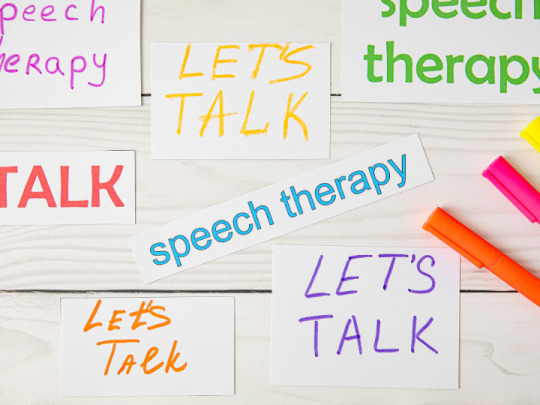
The Importance of Speech Therapy for Children with Disabilities
Speech therapy is a specialised field of healthcare that focuses on assessing and treating communication and speech disorders. Children with disabilities, such as autism spectrum disorder, Down syndrome, cerebral palsy, and hearing impairments, frequently experience difficulties in developing speech and language skills. Speech therapy serves as a lifeline for these children, providing them with the tools they need to communicate effectively and improve their overall quality of life.
Tailored Approaches for Individual Needs
One of the remarkable aspects of speech therapy is its personalised approach. Each child is unique, and speech therapists in Scarborough recognise that. They conduct thorough assessments to identify a child's specific challenges, whether it's articulation, fluency, voice, or language comprehension. With this information, therapists develop customised treatment plans that cater to the child's needs, ensuring the most effective intervention.
Building Strong Foundations
Speech therapy isn't just about teaching children how to pronounce words correctly; it's about building a strong foundation for effective communication. Therapists work on various aspects of communication, including:
1. Articulation: Helping children produce sounds and words.
2. Language Development: Expanding vocabulary and sentence structure.
3. Fluency: Addressing stuttering or other speech disruptions.
4. Voice: Improving pitch, tone, and vocal quality.
5. Pragmatics: Teaching the rules of social communication.
Early Intervention is Key
Early intervention is crucial for children with disabilities, as it can significantly impact their progress. Speech therapy can begin as early as infancy if communication difficulties are identified. The earlier therapy starts, the better the chances of achieving positive outcomes. In Scarborough, speech therapists work closely with parents and caregivers, offering guidance on supporting their child's communication development at home.
Unlocking the Future
The benefits of speech therapy for children with disabilities are far-reaching. Beyond improved communication skills, it can boost a child's confidence, foster better relationships with peers and family, and enhance academic performance. Effective communication skills are also essential for future success in school and the workforce.
Access to Speech Therapy in Scarborough
Scarborough, a vibrant and diverse community, is home to many dedicated speech therapists passionate about helping children with disabilities reach their full potential. Parents and caregivers in Scarborough have access to various resources and professionals who can guide them on this journey.
In summary, speech therapy for children with disabilities is a powerful tool for unlocking their potential and ensuring they can communicate effectively. In Scarborough and beyond, dedicated speech therapists work tirelessly to support these children and help them overcome their communication challenges. Through personalised and early interventions, they pave the way for brighter futures, where every child can find their voice and thrive, regardless of their disabilities. So, if you're in Scarborough and searching for "Speech Therapy children disability Scarborough," know that help is available to empower your child on their journey to effective communication and a brighter future.
#Speech Therapy#Speech Therapy children disability#Speech Therapy children disability Scarborough#children disability
0 notes